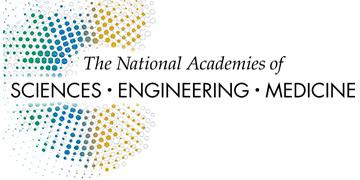Digital Clinical Trials with Novel Machine Learning and AI Architectures

October 29, 2018 - October 30, 2018
Washington, DC
Dr. Shah was an invited speaker and a contributor at The National Cancer Policy Forum developed workshop series at the The National Academies of Sciences, Engineering, and Medicine to examine strategies to improve cancer diagnosis and care. The workshop was held on October 29 – 30, 2018 to examine the use of high-dimensional omics data and computational methods in precision oncology care. Proceedings from the workshop was subsequently published by The National Academies of Sciences, Engineering, and Medicine.
Talk title: Digital Clinical Trials for Oncology Patients with Novel Machine Learning and AI Architectures
To examine opportunities to improve cancer diagnosis and care in the new precision oncology era, the National Cancer Policy Forum developed a two-workshop series. The first workshop focused on patient access to expertise and technologies in oncologic imaging and pathology and was held in February 2018.The second workshop, conducted in collaboration with the Board on Mathematical Sciences and Analytics, was held in October 2018 at The National Academies of Sciences, Engineering and Medicine to examine the use of multidimensional data derived from patients with cancer, and the computational methods that analyze these data to inform cancer treatment decisions. The workshop convened diverse stakeholders and experts, including clinicians, researchers and statisticians, and patient advocates, as well as representatives of health care organizations, academic medical centers, insurers, and federal agencies. The workshop included presentations and panel discussions on the current state of computational precision oncology and its opportunities, challenges, and limitations. Topics explored included
• Data quality, completeness, sharing, and privacy;
• Preclinical and clinical validation of the reliability, safety, and effectiveness of diagnostic tests and clinical decision support tools;
• Regulatory oversight and reimbursement;
• Communication of omics findings to clinicians and patients; and
• Lessons from the use of computational precision oncology in clinical practice.
The published workshop proceedings highlights suggestions from individual participants, including Dr. Shah and his research regarding potential ways to improve the translation of computational precision oncology into clinical practice.